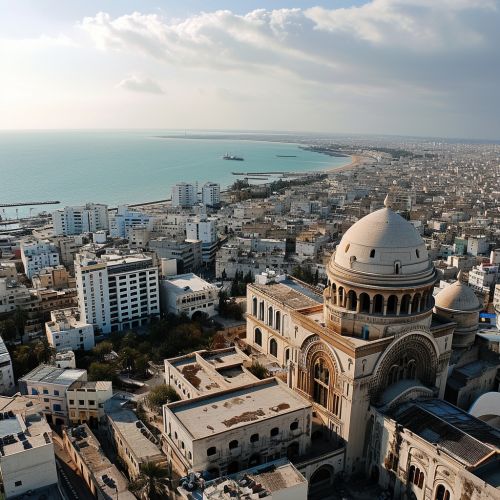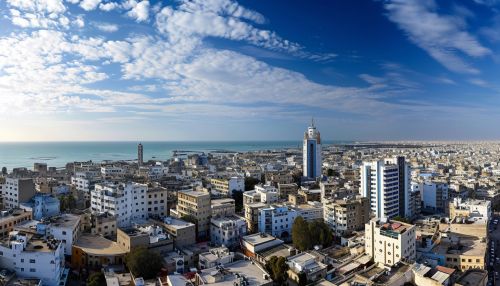Tunis
Geography
Tunis is the capital and largest city of Tunisia, a country located in North Africa. It is situated on a large Mediterranean Sea gulf, the Gulf of Tunis, behind the Lake of Tunis and the port of La Goulette. The city extends along the coastal plain and the hills that surround it. Tunis is divided into two sectors: the old city, or the Medina, and the new city, or the Ville Nouvelle.


History
The history of Tunis is rich and complex, dating back to ancient times. The city was originally a Berber settlement. It was conquered by the Romans and became an important city of the Roman Empire. After the fall of Rome, Tunis was ruled by various Islamic dynasties, including the Aghlabids, the Fatimids, and the Hafsids. In the 16th century, Tunis came under Ottoman rule, and in the late 19th century, it became a French protectorate. Tunisia gained independence from France in 1956, and Tunis became the capital of the newly independent country.
Economy
Tunis is the economic hub of Tunisia. It is home to one third of Tunisian companies including almost all the head offices of companies with more than fifty employees. The economy of Tunis is diverse and primarily service-oriented, but it also includes industries such as textiles, automotive manufacturing, and food processing. The city is also a major centre for banking and finance.
Culture
Tunis is a city with a rich cultural heritage. It is known for its historic Medina, a UNESCO World Heritage Site, which is filled with ancient mosques, palaces, and markets. Tunis also has a vibrant contemporary art scene, with numerous galleries and festivals. The city is home to the National Theatre of Tunisia, the Tunisian National Orchestra, and several museums, including the Bardo National Museum, which houses one of the world's largest collections of Roman mosaics.
Education
Tunis is the educational centre of Tunisia. It is home to several universities and higher education institutions, including the University of Tunis, Tunis El Manar University, and the Tunis University of Technology. The city also has a number of international schools and language institutes.
Transport
Tunis is served by a network of public transportation that includes buses, trams, and a metro system. The city is also home to the Tunis-Carthage International Airport, which is the main international gateway to Tunisia. The Port of Tunis is one of the largest ports in the Mediterranean and Africa.
